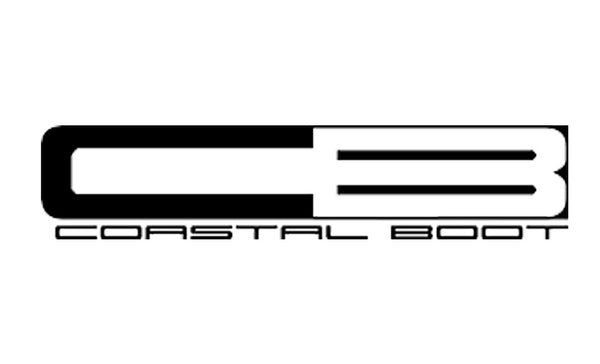There are work hazards that occur every day in various work environments. In this article, we’ve compiled the top hazards that occur frequently and explain the best way to prevent them. Although there are additional hazards that may be found in workplaces, these are the ones we felt needed some immediate attention. Use this article to educate yourself on how to prevent hazards from occurring and stay safe during your work day.
Trips, Slips, and Falls
The most common cause of injuries in the workplace is falling. Employees often trip over uneven floor surfaces and loose cables or slip because of wet floors. Employers end up spending a lot of money every year on these types of mishaps, which could have easily been prevented if safety regulations had been followed properly. It’s the responsibility of both the employers and the employees to ensure that they are in a safe work environment.
Accidents happen, but by cleaning up spills, returning equipment to where it belongs, putting up better lighting, and requiring employees to wear slip-resistant boots or slip-resistant shoes can help ensure employees’ safety.
Electrical
Individuals who work with electricity put themselves in serious danger on a daily basis. “Live” wires are extremely dangerous. In fact, if a “live” wire touches someone directly or indirectly it can harm or even kill someone. Voltages higher than 50 volts AC (or 120 volts DC) are hazardous and need to be taken seriously. Every year there are at least a handful of fatal electrical accidents that occur in the workplace. Even if you don’t die from getting electrocuted, you may be injured permanently. These accidents are often caused by faulty equipment, which should have been checked in an effort to avoid issues.
Some important steps you should take to avoid electrical accidents include: ensure all electrical installations are up to standards, use the right equipment for the job (such as wearing electrical hazard rated boots), and replace any sections of the cables which are damaged.
Fire
Fire is another common workplace hazard that you should watch out for. In order to prevent danger caused by fire, you should take some important precautions, such as making sure all fire alarms and detectors are working fine and have batteries (just in case the power goes out). All employees need to be trained on how to use the fire alarm and what the proper escape plan is.
Fire extinguishers should be placed throughout the building and needs to be checked and maintained on a regular basis. If employees are working near flames, they should always wear fire-resistant workwear. Highly flammable materials should always be handled with care, electrical equipment should be turned off when it’s not being used, and cigarette butts should always be entirely put out in an effort to minimize fire hazards. Employees and employers both need to play an active role in preventing fires ion the workplace.
Physical Hazards
Physical hazards are at the top of the list of common workplace hazards. Unguarded machinery, vibrations, frayed electrical cords, exposed moving parts, and working up high on a ladder or scaffolding are all causes of workplace physical hazards. Falling objects can also cause physical hazards.
As you go through your workday you’ll likely spot one or more of the aforementioned issues. Always be attentive as you go through your workplace and when you bump into hazards be sure to let someone know so that the issue gets fixed. This will help ensure that you have a safe work environment. Employers need to ensure employee safety and continuously educate workers on how to properly operate, work near, and care for work equipment. Employees should always wear safety equipment and workwear, such as steel toe boots, to minimize physical hazards.
Chemical Hazards
If you work with chemicals the last thing you want is to be exposed to those chemicals directly. Cleaning products and solvents, carbon monoxide, vapors and fumes, gasoline, and other flammable materials can hurt you and can even cause permanent damage. Chemicals can burn, as well as cause skin irritations, eye injury, and even permanent blindness if you are not careful. Solvents and spray paint cans are highly flammable and can explode if not kept away from heat. All hazardous substances must be accurately labelled and should include appropriate precaution symbols. Remember to always follow the directions provided to working with certain products. If you don’t know how to correctly use a certain product, avoid it entirely.
Be sure to dispose chemicals properly, never pouring them down the drain. Employees need adequate ventilation, a sink to wash their hands after handling chemicals, protective gear like chemical-resistant gloves and masks, and ensure chemical bottles do not have any leaks.
Noise
This type of workplace hazard is often overlooked, but the truth is, loud noise can permanently damage your hearing. Hearing loss can occur progressively through prolonged exposure to loud noises, or immediately through exposure to certain sound waves, such as those caused by explosions or gunfire. Individuals who work in noisy places, like construction sites, factories, or airports are most at risk for hearing loss.
If employees have to raise their voices to communicate from only a yard away the noise level is already at a harmful level. Employers must always ensure that all employees are trained on how to wear hearing protection and minimize hearing loss risks.
Regardless of what your job is, stay safe!
We at Coastal Boot have a wide selection of affordable slip-resistant boots, slip-resistant shoes, steel toe boots (and much more) available for individuals who work in a hazardous work environment. Give us a call today at 1 (800) 972-7627 to place an order over the phone or go to our website, and place your order online.
Get Social With Us...
- Connect With Us On Google+
